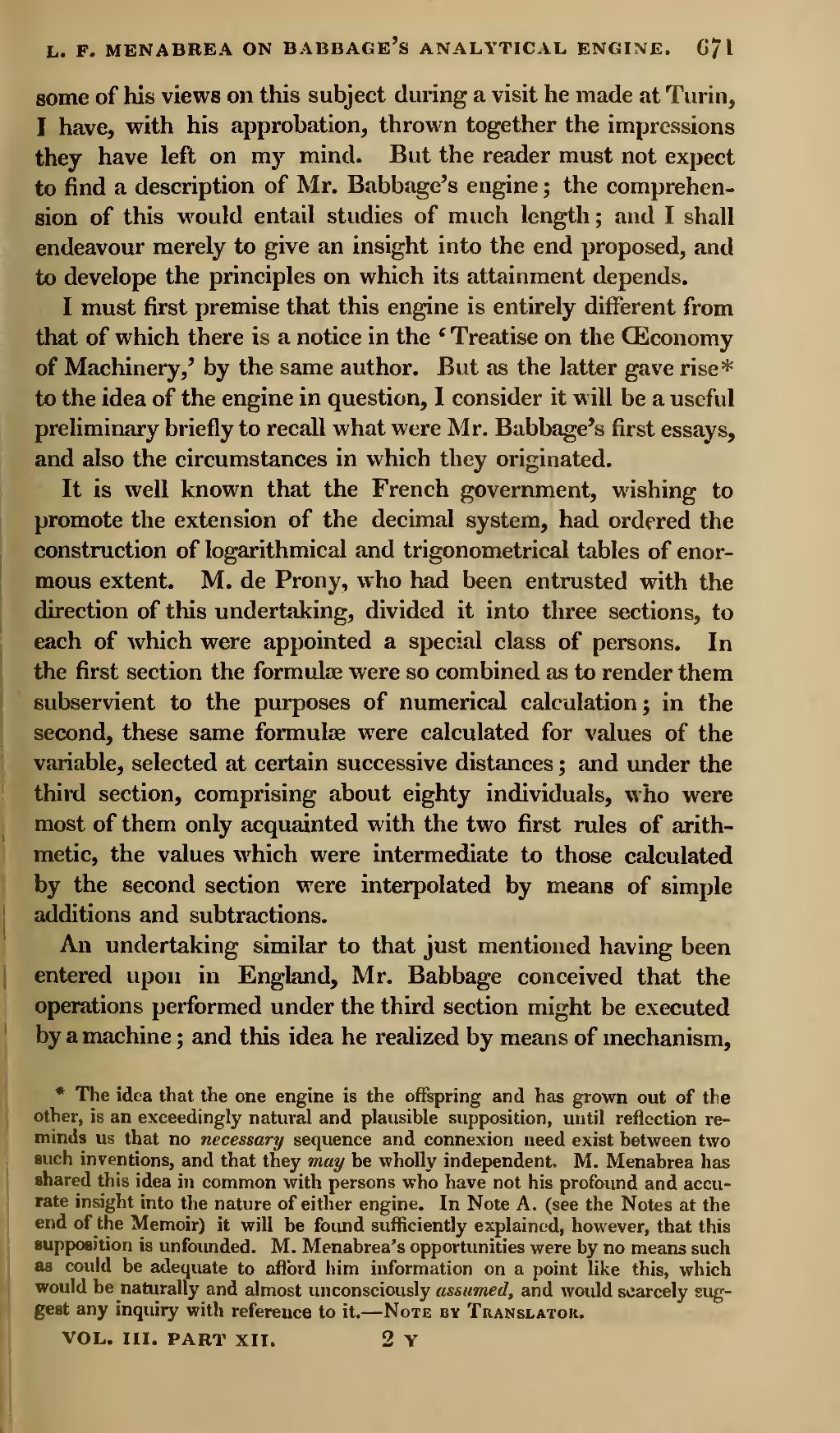some of his views on this subject during a visit he made at Turin, I have, with his approbation, thrown together the impressions they have left on my mind. But the reader must not expect to find a description of Mr. Babbage's engine; the comprehension of this would entail studies of much length; and I shall endeavour merely to give an insight into the end proposed, and to develope the principles on which its attainment depends.
I must first premise that this engine is entirely different from that of which there is a notice in the 'Treatise on the Œconomy of Machinery,' by the same author. But as the latter gave rise[1] to the idea of the engine in question, I consider it will be a useful preliminary briefly to recall what were Mr. Babbage's first essays, and also the circumstances in which they originated.
It is well known that the French government, wishing to promote the extension of the decimal system, had ordered the construction of logarithmical and trigonometrical tables of enormous extent. M. de Prony, who had been entrusted with the direction of this undertaking, divided it into three sections, to each of which were appointed a special class of persons. In the first section the formulæ were so combined as to render them subservient to the purposes of numerical calculation; in the second, these same formulæ were calculated for values of the variable, selected at certain successive distances; and under the third section, comprising about eighty individuals, who were most of them only acquainted with the two first rules of arithmetic, the values which were intermediate to those calculated by the second section were interpolated by means of simple additions and subtractions.
An undertaking similar to that just mentioned having been entered upon in England, Mr. Babbage conceived that the operations performed under the third section might be executed by a machine; and this idea he realized by means of mechanism,
- ↑ The idea that the one engine is the offspring and has grown out of the other, is an exceedingly natural and plausible supposition, until reflection reminds us that no necessary sequence and connexion need exist between two such inventions, and that they may be wholly independent. M. Menabrea has shared this idea in common with persons who have not his profound and accurate insight into the nature of either engine. In Note A. (see the Notes at the end of the Memoir) it will be found sufficiently explained, however, that this supposition is unfounded. M. Menabrea's opportunities were by no means such as could be adequate to afford him information on a point like this, which would be naturally and almost unconsciously assumed, and would scarcely suggest any inquiry with reference to it.—Note by Translator.
VOL. III. PART XII.
2Y
